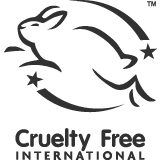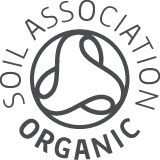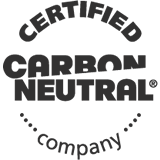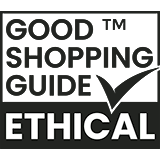Ethical Trading Policy
Opening statement
We love creating natural, organic beauty and health products that are efficacious, in a way that cares for people and our planet. Since opening our first shop in Covent Garden, London, in 1981, we have been committed to providing a satisfying, safe and supportive workplace for all and to ensuring fair and respectful relations with suppliers.
'Slavery, servitude and forced or compulsory labour’, as government guidelines say, is ‘a crime resulting in an abhorrent abuse of human rights'.
We are committed to preventing acts of modern slavery and human trafficking within our business and supply chain and impose the same high standards on our suppliers as we do our employees.
We agree with the government’s definition that ‘Human rights are rights and freedoms that belong to all individuals regardless of their nationality and citizenship'.
We support the Universal Declaration of Human Rights and the Ten Principles of the Global Compact in the areas of Human Rights, Labour, Environment and Anti-Corruption.
To help identify and reduce human rights risks across the rest of our supply chain, we became members of the Ethical Trading Initiative (ETI) and Supplier Ethical Data Exchange (Sedex). ETI and Sedex aim to improve ethical and responsible practices in global supply chains. Their core principle is avoiding unfair or unsafe labour practices, including slavery and human trafficking.
To demonstrate our commitment to responsible trading, we follow the ETI Base Code and its principles of implementation. Working alongside global ETI members and recognised brands we strive to keep workers safe and free from exploitation around the world.
The ETI Base Code is founded on the conventions of the International Labour Organisation (ILO), and is guided by the following principles:
- Employment is freely chosen
- Freedom of association and the right to collective bargaining are respected
- Working conditions are safe and hygienic
- Child labour shall not be used
- Living wages are paid
- Working hours are not excessive
- No discrimination is practiced
- Regular employment is provided
- No harsh or inhumane treatment is allowed
This statement is made in accordance with Section 54(1) of the Modern Slavery Act 2015 and constitutes Neal’s Yard (Natural Remedies) Limited and its group companies’ slavery and human trafficking statement for the financial year 4.
Governance, accountability and our suppliers
As an ethical and organic health and beauty company, respecting human rights throughout our business is at the heart of our company ethos. We aim to build strong, respectful, long-term relationships with our suppliers, resulting in a robust and resilient supply chain.
As part of our commitment to combating modern slavery, we have in place the following policies:
- Anti-Slavery Policy
- Anti-Bribery and Corruption Policy
- Ethical Company Policy
- Sustainable Purchasing Policy
- Whistleblowing Policy
- Supplier Code of Conduct (Do Good Ethical Supplier and Supply Chain Guiding Principles)
We are privileged to buy a wide range of materials from many countries around the world and, because our supply chain is global, we take our responsibility seriously towards those involved, both directly and indirectly. Our supply chain procedures are designed to:
- Establish and assess areas of potential risk in our business and supply chains
- Monitor potential risk areas in our business and supply chains
- Reduce the risk of slavery and human trafficking occurring in our business and supply chains
- Provide protection for whistle blowers
We include obligations regarding the ethical treatment of employees in our standard terms of business. During the last year we have been in discussions with our key suppliers - based on value and risk - to ensure all have contract terms in place, concentrating on the approximate 20% of our suppliers that account for 80% of our direct expenditure. Our standard supply agreement for the provision of indirect goods and services, and our agreements with our franchisees and distributors both in the UK and abroad, all contain anti-bribery and corruption and modern-day slavery terms.
We seek to buy all goods (from both packaging to raw materials and appliances) from suppliers with a proactive approach to protecting the environment and fair-trade practices, as outlined in our Sustainable Purchasing Policy.
We use certifications that ensure our supply chain complies with the UN Convention for Human Rights and the core standards of the International Labour Organisation. It is included in certain organic standards (such as the Soil Association Organic standard) that there is no forced or involuntary labour, nor child labour (as defined by the UN Convention for Human Rights).In line with our Sustainable Purchasing Policy, we will always prioritise certified organic ingredients and materials where they are available in reliable volumes at the right quality. With fair trade certifications the previous points remain true, and it also certifies:
- Employees have the right to associate, organise and negotiate terms
- Employees are paid a fair wage
Fair trade is about better prices, decent working conditions and fair terms of trade for farmers and workers that include reliable and long-term commitments to purchasing.
Our Sustainable Purchasing Policy also requires that we use quality fair trade certified materials that have reliable long-term availability unless the ingredient material is not organic, and an alternative organic material is available.
Roles and responsibilities matrix (RACI)
Below summarises the governance and accountability structure that is embedded within Neal’s Yard Remedies. It is central to our responsible and sustainable business approach.
|
Neal’s Yard Remedies RACI table |
||||
|
Abbreviations: R = Responsible, A = Accountable, C = Consulted; I = Informed |
||||
|
Board of Directors |
|
Key Stakeholders |
All Company |
|
|
Overall responsibility for human rights due diligence |
R |
A |
A |
I |
|
Approving Neal's Yard Remedies sustainability strategy |
R |
A |
A |
I |
|
Setting and Reviewing of the strategy and driving engagement with stakeholders |
C |
R |
R |
C |
|
Leads operational execution of the strategy eg through working groups |
I |
C |
R |
I |
|
Reviewing the potential risks across the business |
I |
I |
A |
I |
Our commitment to ethical trade and responsible sourcing
In 2014 we became the first health and beauty brand to receive 100/100 for ethics by The Ethical Company Organisation, a score we have maintained for the last 10 years. We are proud to endorse our continued ethical trade commitment by sharing with our customers the incredible stories behind some of our sustainably grown and harvested ingredients, and the way in which they support communities all over the world.
Our structure and supply chains
From small beginnings in a quiet corner of Covent Garden, where our head office remains today, we’re now a global leader with a growing presence across five continents. We use the highest percentage of organic ingredients as they are kinder to the earth, kinder to the farmers that grow them, and kinder to you. We take these responsibly sourced herbs, botanicals and essentials oils, and turn them into award-winning formulations at our eco-factory in Dorset, England.
By maintaining strong, lasting direct relationships with our suppliers, we can be confident that we are putting only high-quality, sustainably sourced ingredients in our products.
Our “tier one” suppliers are required to sign up to Sedex, a collaborative platform for sharing ethical supply chain data, which allows us to review any risks and take appropriate mitigating action. We expect our suppliers to acknowledge our ‘Do Good Ethical Supplier and Supply Chain Guiding Principles' and complete our Supplier Audit Questionnaire.
Our geographical spread of sourcing is global, including, but not limited to, Uganda, Nepal, Mexico, Democratic Republic of the Congo, Oman, Kenya, Australia and Europe where our supply partners grow and harvest ingredients to be used in many of our favourite products.
We recognise some regions are more volatile than others and will work with our suppliers to diminish associated risks in the supply chain.
Employee representation
We respect individuals’ rights in our supply chain and are committed to supporting those rights at every stage in the supply chain. Collectors supply the fruit they harvest to local co-operatives ensuring a fair price is paid, while farming communities sell their produce through ethical cooperatives ensuring fair trading conditions.
We expect our suppliers to comply with applicable national, regional and local laws, regulations and standards relating to the ETI’s principles including freedom of association and the right to collective bargaining through their own supplier audit and approval process. We recognise in certain countries these rights may be restricted and, in these cases, encourage suppliers to seek alternative means to providing workers these rights.
Challenges in our supply chain and steps taken
We recognise some of our greatest risks are difficult to remedy alone. With collaboration from ETI members, global partners, world leading governments, and support from movements such as Greenpeace, preventative measures can be taken to mitigate risk. We are committed to supporting and campaigning loudly on issues we care about, working together with our charity partners to raise awareness and vital funds for important environmental issues.
“Standing united on this matter is more than just a coming together of like-minded people. It’s a call to arms for every person, company and organisation to spread the word and spur action. We hope that together, our voices will amplify the call on the government and drive positive, meaningful change.” - Anabel Kindersley, Co-Owner and CEO.
Our greatest challenges are those that are causing damage to our planet and environment, while also having a detrimental impact to those who work in our supply chain.
Climate change is our ultimate long-term threat with the increase in global temperatures primarily caused by fossil fuel use, deforestation, and some agricultural and industrial practices threaten the root level of our supply chain. The threat of extreme flooding, water resources and extreme heat, endangers habitats and wildlife and exposes farming to the impact of unpredictable yields and increased vulnerability to diseases and pests, affecting incomes. As a global business, we know we have a responsibility to help tackle climate change, and have several measures in place to do so, including:
Carbon neutral certification
We were the first UK high street retailer to be certified CarbonNeutral® back in 2008, and have offset our greenhouse gas emissions every year since. The financial contribution we make to offset these emissions helps fund a series of renewable energy projects around the world.
Renewable energy
The 700m2 of solar panels we installed at our eco-factory in Dorset generate 15-18% of the electricity used there. This is topped up by a 100% UK-sourced renewable tariff, and we also choose 100% renewable electricity and gas for our stores.
Natural and organic ingredients.
On average, organic farms use less energy than non-organic farms. Organic farming reduces greenhouse gas emissions by severely restricting the use of manufactured chemical fertilisers, which are often imported from abroad and come from burning fossil fuels. Instead, farmers rely on natural fertilisers, which can be sourced locally or from their own farm like green manures, animal manures and ‘cover crops’ to fix nutrients, as well as crop rotations.
The Soil Association has reported that organic soil also sequesters more carbon dioxide than non-organic soil - on average, nearly 2 tonnes more per football pitch-sized area.
Supporting pollinators and biodiversity
Recent data suggests that the UK has seen a 60% drop in the number of flying insects over the past 20 years, which poses a major risk to the healthy functioning of our natural ecosystems. We’ve been campaigning to protect pollinators through our Save the Bees campaign since 2011, through which we have raised over £350,000 for bee-friendly charities to date.
We are now leading a coalition of over 110 businesses and organisations to call on the UK government for a lasting ban on toxic pesticides, and to raise public awareness of the decline of these vital insects.
Protecting endangered habitats
The World Land Trust (WLT) works to save threatened habitats acre by acre, creating protected nature reserves around the world safeguarding some of the planet’s most vulnerable habitats and wildlife.
Neal's Yard Remedies has supported WLT since 2012, both through the purchase of Carbon Balanced Paper for our cartons and gift boxes and through customer donations. Through this partnership, we have offset over 600 tonnes of CO2 and helped protect over 3 million m2 of endangered forest.
The card and paper we use are FSC® certified, which means it comes from responsibly managed forests.
Other initiatives we have in place to protect people and planet are as follows:
Packaging waste and plastic pollution on our land and in our oceans is a visible and a presentable risk socially and environmentally. Waste is a global problem and has the highest detrimental impact in less developed and volatile regions where there is no formality in place to protect workers, particularly waste pickers, leaving them open to exploitation.
As a result, we source materials responsibly and consider the impact of those materials on the environment and on people.
Minimising packaging waste
We’re progressing towards the vision of a ‘circular economy’, in which resources are re-used rather than going to landfill. We’re doing this by minimising single-use packaging, particularly non-recycled and single use plastic.
Around 31%* of paper and cardboard waste is not recycled and ends up in UK landfill despite nationwide recycling schemes. We don’t want to contribute to excess waste going to landfill, which is why we’ve taken the decision to remove cardboard outer boxes from some of our products. So far, we’ve removed enough boxes to save an estimated 3.5 tons of card each year.
We use glass where possible and appropriate, but, where plastic is necessary (such as for shower gels), we prioritise 100% post-consumer recycled (PCR) plastic. All our blue plastic bottles are now made from PCR plastic.
In 2017 we became the first national company to commit to the Refill Scheme, actively encouraging customers to come in and refill water flasks, to reduce the usage of single-use plastic bottles.
Campaigning against plastic microbeads
We’ve never used plastic microbeads in any of our scrubs and polishes and are proud to have successfully lobbied the UK government, alongside Greenpeace and Fauna & Flora International to lobby the UK government to #BanTheBead.
Looking forward
Following a review of our actions to prevent slavery and human trafficking in our business and supply chains, we will continue to work on the following steps to tackle slavery and human trafficking during :
- Review our policies, processes, and planning based on a risk mitigation approach.
- Continue the rollout of supplier contracts and service level agreements.
- Review our indirect supply chain for goods and services, including the rollout of the ‘Do Good Ethical Supplier and Supply Chain Guiding Principles’.
- Assess the potential use of Sedex for larger indirect suppliers as well as wholesale customers.
- Confirm targets on the percentage of physically processed agricultural ingredients that are certified organic
Signed:
Anabel Kindersley
Chief Executive Officer
Neal’s Yard (Natural Remedies) Limited





